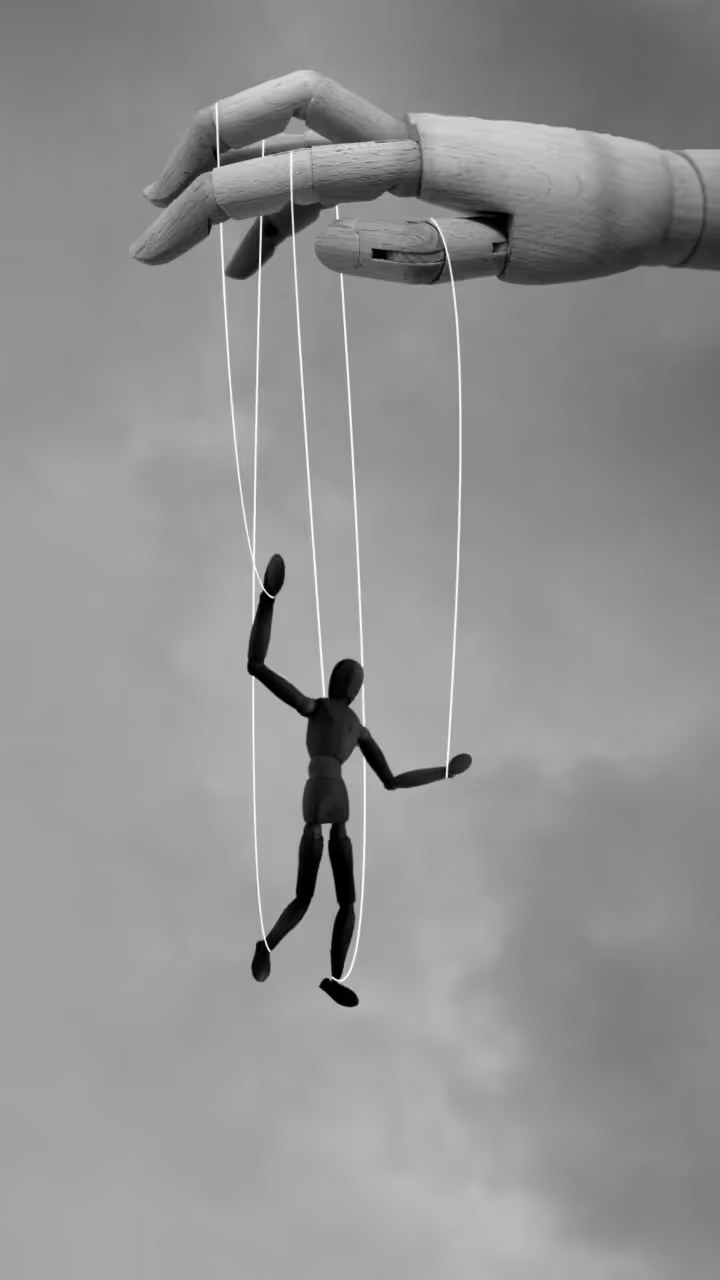A common trait among people with narcissistic people is that they avoid taking responsibility for their behavior and actions. Their default defense...

A common trait among people with narcissistic people is that they avoid taking responsibility for their behavior and actions. Their default defense mechanism is never admitting they are wrong when faced with accountability. The reasons narcissistic people deflect responsibility are numerous. Firstly, they live in constant denial and are constantly deluded by the consequences of their actions. They also lack empathy, making them resort to playing the victim card all the time or victim blaming and shaming. This attitude prevents people from receiving support for narcissism from their friends, family, and professionals. Despite their inflated sense of importance, they have low self-esteem, which causes them to deflect responsibility. They are also overly critical of themselves and the people around them. Lastly, their excessive need for control over others causes them to deflect responsibility. Here are 5 reasons why narcissistic people deflect responsibility.
Narcissistic people live in constant denial of facts and reality. Living in denial and being deluded are the primary reasons narcissistic people deflect responsibility. Denial of events that occurred, denial of things they did, how they acted, and denial of the consequences of their negative behavior shields them from taking responsibility for their actions. This denial begins as a conscious act, and since they do it all the time, it forms a significant part of their personality over time. This means they are often detached from reality and highly delusional.
This major issue leads to friction in their relationship with other people. Their sense of superiority and grandiosity deludes them into thinking they're incapable of making mistakes or that accepting responsibility means accepting their flaws. This can lead to shame and embarrassment when called to take responsibility for their actions. To avoid this, they would rather pretend the incident never happened or deflect responsibility. This could involve attacking the other person involved, inciting the person to remove the focus from themselves. It could also involve arguing until the other person is exhausted and their responsibility is diverted. All these are tactics used by narcissists to ensure they remain in denial and deluded rather than taking responsibility for their actions.

Another one of the reasons narcissistic people deflect responsibility is that they severely lack empathy. Due to their grandiose sense of self, they are unable to understand other people, thereby making them unable to take responsibility for their actions. Rather than show empathy, they deflect responsibility by blaming others even when they are clearly responsible. Blaming the victim could involve bullying or intimidation, name-calling, or belittling the person. It could also involve rationalizing their actions by saying they acted in such a manner because the person deserved it; therefore, they are not wrong. They may also play the victim card by acting like they were hurt or have suffered from the other person's actions, even when they are clearly in the wrong.
They might accuse the person wrongfully or project on the person. They can also be manipulative, twisting the story or incident that occurred. Rather than try to understand their wrong or how the other person feels about their behavior or actions, they would manipulate the person and make them vulnerable. Although narcissistic people can show sympathy when needed, their failure to empathize with people puts them in a bad light.
Narcissistic people have very fragile egos rooted in low self-esteem and insecurities. It is one of the reasons narcissistic people deflect responsibility. Although they try to mask their low self-esteem with extreme confidence, any attempt to be accountable makes them vulnerable. Since they obsess with people's perception of them, they would try to protect their image even if it means not taking full responsibility for their actions. Any demand for accountability is seen as criticism which they are sensitive to and find difficult to accept. They can take it as a personal attack and might respond by lashing out. The tactics they use to deflect responsibility, in this case, are toxic amnesia, gaslighting, minimization of the incident or the person's feelings, and deflection. These tactics are rooted in their low self-esteem, and they use them as gateways to deflect responsibility.
Self-criticism is one of the reasons narcissistic people deflect responsibility. Narcissists are also very critical of other people. This makes them vulnerable and leads to hurt and negative feelings about themselves. For instance, if, as a child, you were always criticized when you failed to do something rather than corrected, you may grow up to become a narcissist who is always critical and cannot accept responsibility. This means you're always seeking self-validation, attention, and admiration, which demanding accountability does not give. This can also lead to rage, yelling, and passive-aggressive behaviors such as silent treatment, stonewalling, mocking or ridiculing people, and sarcastic comments. They do all these to shut down all communication, turn the focus away from them, and deflect responsibility. Their self-critical tendency isn't only to deflect responsibility, it also leads to self-injury.
Narcissistic people love exercising control over other people. They also have an inflated sense of importance and superiority. Being in control fuels their feelings of superiority. Their exaggerated sense of self and feelings of superiority also means they want everyone to agree with them and everything to go their way. This makes any attempt to accept responsibility an affront to their controlling personality. Narcissist people do not like being challenged, confronted, or accepting differing opinions. Any conflict or difference leads to a deflection of responsibility. Accepting responsibility would make them feel like they no longer have control. Whenever they feel like they're not in control, they might resort to character assassination, smearing the other person's reputation, and making confusing comments. All sorts of attempts are made to dominate and control other people.
Narcissistic people never admit they are wrong, preventing them from seeking and getting support for narcissism. Reasons narcissistic people deflect responsibility are because they live in denial and are constantly deluded, they lack empathy, have low self-esteem, are critical of themselves and others, and are controlling.
https://psychcentral.com/blog/psychology-self/2020/04/narcissists-responsibility#7
Communicating with a narcissistic woman can be challenging due to their inflated sense of self-importance and tendency to feel superior. It's important to maintain your personal space and set clear boundaries. Avoid getting drawn into their manipulative tactics or abusive behavior, such as the silent treatment or belittling comments that make you feel inferior. Instead, focus on expressing your thoughts and feelings clearly and assertively.
When a narcissist ignores you, it's common to feel guilty. However, remember that this is a common tactic used by narcissists to make you question your worth. Try not to internalize this guilt. Instead, create boundaries and seek support from trusted friends, family, or a mental health professional.
If you're dating someone who is always seeking attention and approval, is extremely charming and successful or has a deep need for admiration, they may be a narcissist. However, the best way to know for sure is to consult with a mental health professional.
Narcissistic mothers may struggle with parenthood as their self-centered nature can interfere with their ability to put their children's needs first. Often, they view their children as extensions of themselves and can be overly concerned with their children's achievements as a reflection of their own worth.
It is a pattern of behavior that is often seen in relationships where one person has a narcissistic personality disorder. It typically consists of four phases: idealization, devaluation, discarding, and hoovering.
Narcissistic supply refers to the attention and admiration that narcissists crave. If a narcissist is ignoring you, it could mean they're not getting their desired narcissistic supply from you, so they resort to emotional abuse like completely ignoring to manipulate you into giving them more attention.